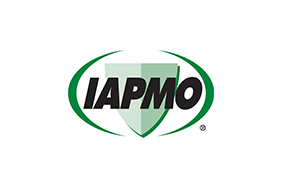Improving Water Quality in Today's Modern Hygiene Infrastructure on Tap at Seventh Annual Emerging Water Technology Symposium
Published 05-19-22
Submitted by International Association of Plumbing and Mechanical Officials (IAPMO®)
SAN ANTONIO, May 19, 2022 /CSRwire/ - With the nation’s largest federal investment in water underway in the form of the 2021 Infrastructure Investment and Jobs Act, water quality and water conservation solutions took center stage last week at the biennial Emerging Water Technology Symposium (EWTS).
Co-convened by the Alliance for Water Efficiency (AWE), the American Society of Plumbing Engineers (ASPE), the International Association of Plumbing and Mechanical Officials (IAPMO) and Plumbing Manufacturers International (PMI) in San Antonio, the symposium unveiled solutions for the nation’s most pressing water challenges such as drought, Legionella and other waterborne illnesses, and the quality of the water and sanitation systems in underserved communities.
Following are some highlights from the event.
In delivering his keynote address remotely from Jakarta, Indonesia, Don Johnston, senior operations director for Water.org, spoke about the impact of the global water and sanitation crisis on low-income households — and he also shared some potential solutions. “In about 19 years, we’ve seen water and sanitation access reach more than 45 million people through more than 10 million microloans, with $3.7 billion disbursed to households,” he said.
In his opening remarks, IAPMO Executive Vice President of Advocacy and Research Pete DeMarco pointed to a number of accomplishments for which the EWTS has served as a springboard, including the development of the IAPMO Water Demand Calculator, which updates nearly century old methods for sizing plumbing systems, and the Water Efficiency and Sanitation Standard (WE•Stand), which water-stressed communities can adopt in addition to their existing plumbing codes to accelerate the use of water recycling technologies.
His colleague, Seán Kearney, managing director of IAPMO’s nonprofit International Water, Sanitation and Hygiene Foundation (IWSH), presented compelling public-private partnership solutions underway to solve a decades-long wastewater crisis in the Alabama Black Belt region.
The two-day symposium also included the following:
- Desalination. Keynote speaker Robert Puente, president and CEO of the San Antonio Water System (SAWS), described how his utility achieved the highest bond rating in its history while constructing one of the largest desalination plants in the nation. Puente discussed how SAWS, which serves 2 million customers over four counties, uses advanced metering deployment, “smart” manhole covers, and conservation.
- Sewer capacity. Phillip White, manager of plumbing and mechanical inspections for the city of Vancouver, British Columbia, shared how his city addressed the problem of insufficient sewer capacity when it came to capturing large amounts of rainfall through water reuse technologies. One development, the Oakridge Centre, utilized the IAPMO Water Demand Calculator and is expected to have the largest non-potable water system in North America.
- Legionella mitigation. Special Pathogens Laboratory Executive Vice President/Founder Dr. Janet Stout looked at approaches and products for mitigating the risk of Legionellosis in point-of-use and point-of-entry building water systems. Improved water management requires knowledgeable Legionella prevention and water service providers, which can come from certification to ASSE/IAPMO/ANSI 12080 for Legionella Water Safety and Management Personnel.
PMI CEO Kerry Stackpole observed that wildfires, flooding and drought that different regions of the United States are experiencing put the plumbing industry front and center on solutions.
“Your active engagement here, in your communities back home, and in the marketplace of ideas, where we will have opportunities to share ideas with one another, will make all the difference,” he said. “You actually are able to turn the dial on this, and I think that’s really exciting.”
IAPMO will provide sessions from the EWTS on-demand in the near future. To be notified when they are available, register at www.ewts.org/2022-ewts.

International Association of Plumbing and Mechanical Officials (IAPMO®)
International Association of Plumbing and Mechanical Officials (IAPMO®)
The International Association of Plumbing and Mechanical Officials (IAPMO®) has been protecting the public’s health and safety for more than 95 years by working in concert with government and industry to implement comprehensive plumbing and mechanical systems around the world.
IAPMO provides leadership toward addressing the global need for sound water efficiency-based codes and standards while working to avoid unintended consequences that have the potential to compromise health and safety. IAPMO supports science-based research and policy-based initiatives at all levels of government, with the goal of helping provide for the safe use of water in buildings around the world.
To encourage development, action and change for better health, IAPMO’s foundation, the International Water, Sanitation and Hygiene Foundation (IWSH) has a simple mission to continuously work to improve on the human condition by fostering the basic human right of safe access to clean water and sanitation. While their mission is simple, their methods are strategic and diverse. IWSH strives to align their efforts with those of government, industry and the communities where they work to ensure that the water systems are safe and sustainable.
More from International Association of Plumbing and Mechanical Officials (IAPMO®)

